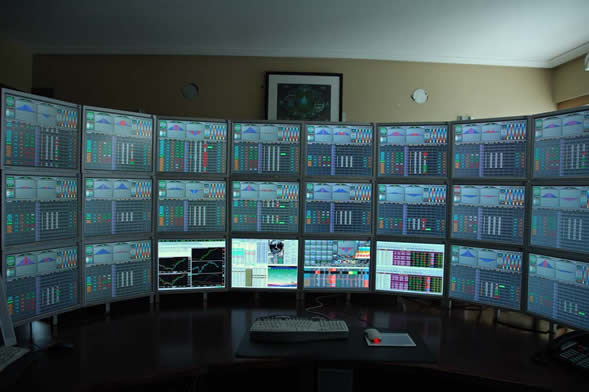Should high frequency trading be regulated or even banned?

High frequency trading is a perfect example where technology has outpaced the public's ability to understand it and the government's capability to regulate it. Nonetheless, pressure to regulate high frequency trading is mounting and even ban certain practices related to it.
Fears are growing that high frequency puts traders who buy stocks the old fashioned way at a disadvantage. You remember. You buy a stock and hold onto it because you like a company's prospects. How gauche.
High frequency trading is what it name implies: buying large volumes of shares and selling them off quickly to make few cents per share or less in profit. It is also known as algorithmic trading where proprietary formulas on computers look for anomalies in a vast number of stocks and trade accordingly.

There's several reasons why institutional traders and little guys like you and me should fear high frequency traders. The estimated 2,000 high frequency trading firms or "prop shops" (as in proprietary) as they are called now represent an estimated 40-70 per cent of the daily equities trading volume. That has to have an impact.
High frequency trading is also associated with flash trading where traders can see incoming buy and sell orders and put in their orders milliseconds before them and accordingly profit. The SEC moved last September to ban flash trading. High frequency trading has also been linked to the related practice of front running where an algorithm or trader sees orders before they are filled and acts on the information....sort of like insider trading. Front running is illegal.
High frequency trading could not exist without cutting edge technology. Many of the algorithms are written in C++ or with mathematical software packages such as Matlab from The MathWorks. They run on Linux servers which are often colocated in the exchanges' data centers so they can respond lightening fast to slight variations in share prices. No wonder high frequency firms look for PhDs who are geniuses in math and programming.
The unanswered question is whether high frequency trading is predatory. After all, many high frequency traders made billions in 2007-08 while the rest of us were losing our shirts. How could this be? Some assume they must be doing something illegal or at minimum taking advantage of traders who hold onto stocks and value certain companies.
If you haven't heard of high frequency trading, don't feel bad. Many investors haven't because high frequency traders typically shun media attention for obvious reasons. After all, their algorithms are proprietary.
Inventing something that straddles ethical and legal boundaries is just another day on Wall Street, which has not even gotten its wrists slapped yet for the credit swaps debacle.
But now they are getting scrutiny. Senator Ted Kaufman (D-Del.) this week called for increased regulation on high frequency traders, according to a story in Security Industry News.
We often think the computer and Internet industries are exclusively creating the technologies that profoundly change our lives. Certainly they do, but it's time to wake up to the reality that the financial industry has just as much impact on that score.
Follow me on Twitter.
This post was originally published on Smartplanet.com